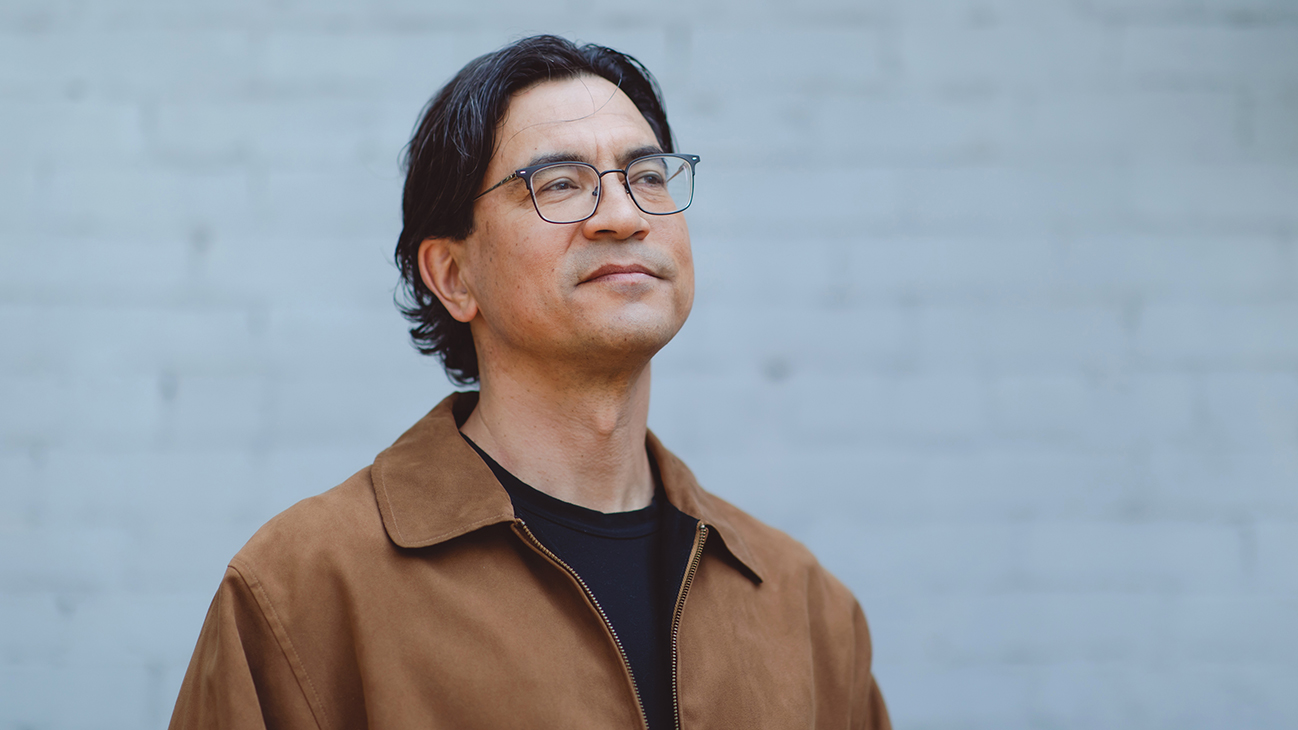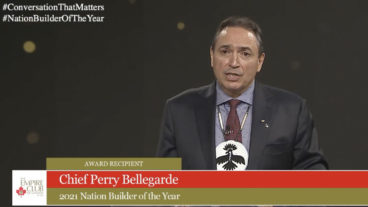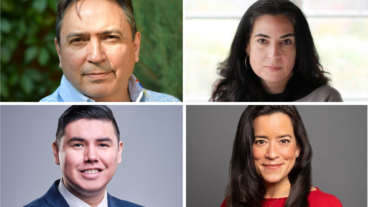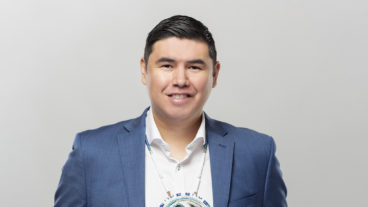An elder once told Duncan McCue that Indigenous people only made the news if they were “drumming, dancing, drunk, or dead”; a pattern he also noticed while growing up, watching the news with his family. Over the course of his award-winning, 25-year career at the CBC, Duncan changed this narrative and transformed how Indigenous stories are shared across Canada.
An Anishinaabe journalist and member of the Chippewas of Georgina Island First Nation in southern Ontario, Duncan is best known to the public as the former host of CBC Radio’s Cross Country Checkup and as a longstanding correspondent with The National. To his journalistic peers though, Duncan is recognized as a leader in decolonizing journalism.
“Years ago,” Matt Galloway, host of CBC’s The Current, said, “Duncan McCue published a document that was internal at CBC, and it was about how to better report form Indigenous communities in this country. I’m not overstating that it changed in many ways how I work and how I think as a journalist. At the back of my mind… often Duncan’s voice is there and Duncan’s advice is there and he has made me a better journalist…”
A Journalistic Changemaker
Duncan joined the CBC in 1998, and while he covered and reported on a variety of stories, it was Indigenous stories he found himself pitching the most — even when his pitches were falling on deaf ears.
“There were still those old-school producers who did not see our stories as newsworthy, and that was frustrating as hell,” Duncan said in an interview with CBC Radio’s Unreserved.
“It was really discouraging to see… people judging our communities in this very narrow news frame and trying to fight daily in the newsroom to get them to understand that there was more to us than death and sadness.”
This set Duncan on his quest to decolonize journalism. He not only wanted to share more Indigenous stories himself, he wanted to educate fellow journalists on how to do the same in a respectful manner. He developed the innovative online resource, Reporting in Indigenous Communities, which shared practical suggestions and tips about building relationships with Indigenous people and interacting with Indigenous communities in a healthy and productive way, and how to best share their stories.
Transforming Journalism in Canada
Duncan has now spent decades training journalists across Canada and the world on how to respectfully share Indigenous stories and perspectives. He turned his online resource into the textbook, Decolonizing Journalism: A Guide to Reporting in Indigenous Communities.
“I don’t think that the vast majority of journalists in this country are racist,” Duncan said. “Some of them may be ignorant. That’s not their fault. That’s the fault of the elementary, the secondary, the post-secondary education that they received, which is, you know, woefully inadequate in many cases when it comes to Indigenous issues.”
Over the course of his career, Duncan has witnessed a huge change in how Indigenous stories are reported. 20 years ago, he said, stories about residential schools would only focus on the legal issues rather than sharing the stories of the survivors. Thankfully, he continued, that has now changed for the better.
“I see coverage now that’s much more nuanced, that is going beyond the trauma and looking at how our people are responding to the residential school past when it comes to, you know, in arts, in sports, in in all kinds of different facets of life,” Duncan said. Though, he added, there is still more to be done with Indigenous coverage still woefully under resourced.
Looking to the Future
While Duncan remains a guest host, trainer, and Indigenous advisor for the CBC, he is also now the professor of Indigenous journalism and storytelling at Carleton University’s School of Journalism. In training the next generation of journalists, he’s planning to incorporate more practical experience for his students, sending them into Indigenous communities to gather stories.
Duncan is creating a safe space for his students to make mistakes and learn from them now before they start reporting for larger audiences. “Making mistakes is a formative way to learn. It’s an important part of Indigenous pedagogy,” he said.
Duncan is also planning to take his lessons out of the classroom and into the community through remote learning. He wants to make journalism more accessible to Indigenous youth and encourage them to become storytellers themselves.
“We’ll start small,” he said, “and make sure that Indigenous youth have an opportunity if they want to, to learn some journalism skills.
Honest and insightful, Duncan McCue is a sought-after trainer and educator in helping to build respectful relationships with Indigenous communities to spark social change and reconciliation.
Contact us to learn more about Duncan and how to book him as a keynote speaker for your next event.




